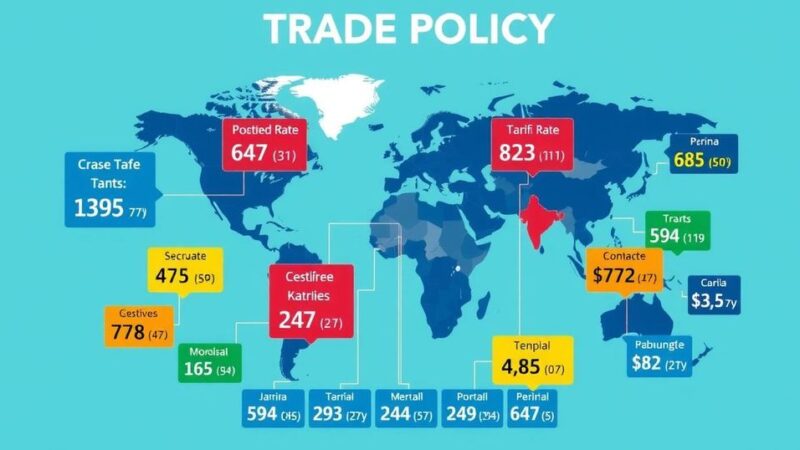The CBN reported a $5.47 billion expenditure on foreign debt servicing from January 2024 to February 2025, indicating increasing revenue pressures. Foreign direct remittances reached $180.03 million in early 2025, reflecting a 1.3% increase compared to the previous year, suggesting potential recovery from ongoing economic challenges.
The Central Bank of Nigeria (CBN) has reported that the nation spent approximately $5.47 billion on foreign debt servicing from January 2024 to February 2025. This expenditure underscores the rising burden on Nigeria’s revenue, as well as mounting pressures on external reserves and fiscal stability. Additionally, while total foreign exchange direct remittances rose by 1.3% year-on-year to $180.03 million in the same timeframe, the overall scenario reflects ongoing economic challenges.
In May 2024, the debt service reached $854.37 million, marking the peak monthly outflow during the review period, while June recorded the lowest at $50.82 million. The CBN noted a 1.9% increase in debt service obligations, rising to $283.22 million in February compared to $276.17 million in March. For Q3 2024, total debt servicing costs rose to approximately N3.57 trillion, demonstrating a quarter-on-quarter increase.
Monthly variations in debt service obligations were noteworthy. They fell 22.1% to $215.20 million in April, only to surge 297% in May, while June saw a significant drop of 94% to $50.82 million before rising sharply again in July. The fluctuating patterns continued through the latter half of 2024, with payments reflecting a complex interplay of economic factors, including currency depreciation that affected total debt service costs.
Foreign exchange direct remittances also demonstrated variability. In January 2025, remittances rose to $540.67 million but dropped by 48.8% to $276.73 million the following month. Yet, the first two months of 2025 showed positive signs, with the total remittances indicating a rebound, potentially due to reforms initiated by the CBN. Despite a decline in total remittances in 2024, which closed at $1.91 billion, early 2025 figures suggest an upward trend that could signify improving economic conditions.
In conclusion, Nigeria’s foreign debt servicing has significantly impacted its revenue and external reserves, with expenditures reaching $5.47 billion from January 2024 to February 2025. Fluctuations in monthly debt payments highlight ongoing economic challenges. Conversely, foreign exchange direct remittances showed signs of recovery in early 2025, reinforcing the potential effectiveness of recent CBN reforms amidst broader economic concerns.
Original Source: www.arise.tv






